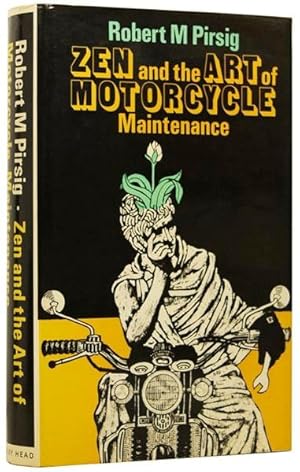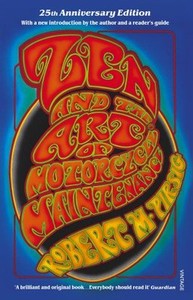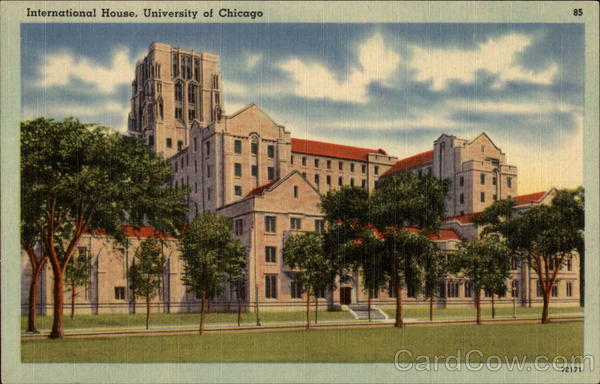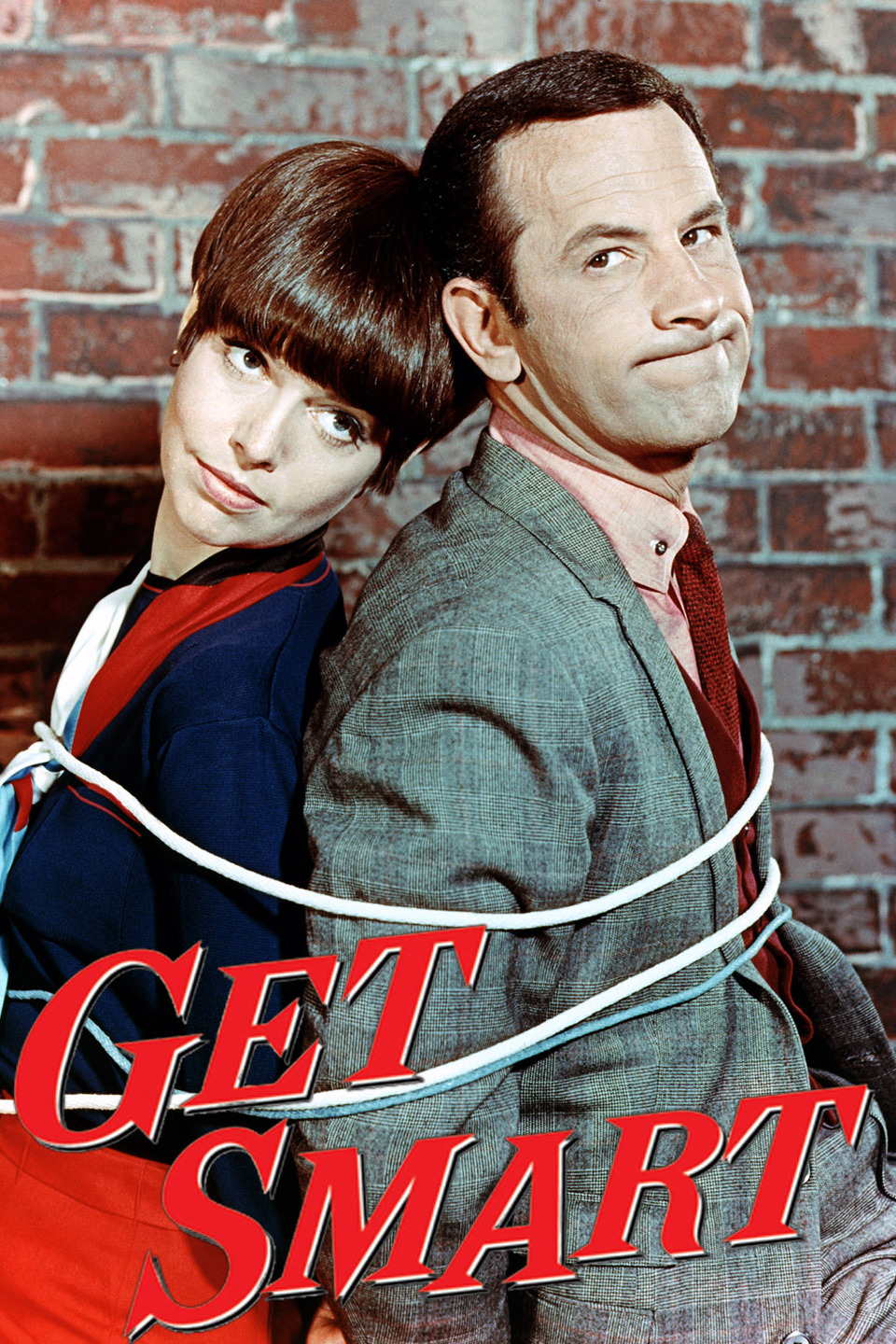If you really want to understand the University of Chicago and its Great Books program, you must first get through a few preliminaries, including, (1) getting to Hyde Park--the once affluent commuter community on the south side of Chicago; (2) learning the language of town and gown; (3) finding a place to live; and (4) hearing from Ford and learning about "umbrella coverage", which has nothing whatever to do with Ford or insurance.


 Oh, there's the interesting people you see (after all, it takes all kinds--as we have all been told when we complain about others). And then it's what these people get up to while waiting for a bus (talking on cell phones that aren't even on, for example), or while riding the bus (looking at the (gadget) in their hands). And then there's the atmosphere of being around bus stations--I have never lived in a port city, but port cities and border towns have the reputation for being very cosmopolitan and end up actually being (whether they know it, or like, or not) marketplaces of ideas. One thinks of the Piraeus in Athens, where the opening scenes of Plato's Republic take place. The opening lines of the Republic are: "Kateben eis Peiraia" ("Yesterday, I went down to Piraeus"). According to the drama of the dialogue, Socrates is making a kind of descent into Hell, where his life is threatened by Thrasymachus (whom Socrates characterizes as a snake) when he seeks to obtain the opinions of the people he meets regarding what justice is as a preparation for gaining insight into what justice is, in and of itself.
Oh, there's the interesting people you see (after all, it takes all kinds--as we have all been told when we complain about others). And then it's what these people get up to while waiting for a bus (talking on cell phones that aren't even on, for example), or while riding the bus (looking at the (gadget) in their hands). And then there's the atmosphere of being around bus stations--I have never lived in a port city, but port cities and border towns have the reputation for being very cosmopolitan and end up actually being (whether they know it, or like, or not) marketplaces of ideas. One thinks of the Piraeus in Athens, where the opening scenes of Plato's Republic take place. The opening lines of the Republic are: "Kateben eis Peiraia" ("Yesterday, I went down to Piraeus"). According to the drama of the dialogue, Socrates is making a kind of descent into Hell, where his life is threatened by Thrasymachus (whom Socrates characterizes as a snake) when he seeks to obtain the opinions of the people he meets regarding what justice is as a preparation for gaining insight into what justice is, in and of itself.

 Pirsig recommends utilizing the freedom of the opening road and motorcycling to your destination so one can be mindful of:
Pirsig recommends utilizing the freedom of the opening road and motorcycling to your destination so one can be mindful of:
But for some of us, "one down, five up", besides being unintelligible as a crossword direction, is more than can comfortably be done with one's big toe. So I missed the bumps on the road and the wind shear of the trucks. I took Air Canada instead, and took my chances, as everybody does when they fly.

In the case of the University of Chicago, I chose International House and the Poinsettia Apartments. I House was designed by the YMCA, and features couches that pull out to make beds. When pulled out, the beds touch the desk and dresser, which means you have to climb into bed from the foot of the bed. The place was built in the 1930s, but I don't think the Great Depression had much to do with the layout of the rooms. I think the idea was to encourage you only to go to your room to sleep, not to live, study, or entertain friends. In that the architect succeeded. The basement of I House contains the massive boiler for the complex, as well as the laundry--you get one change of linens a week--you take your soiled linens down and pick up your fresh ones yourself. No linens, no change. This was a way of controlling the use of bed sheets as the equivalent of Rapunzel's hair--to let people climb up or lower themselves down when the front door of the building was locked.



 The Poinsettia had two other distinguishing features: a beautiful floor mosaic of a crimson poinsettia, and a permanent bulletin board with the exterminator's schedule. The Poinsettia was the sort of roach motel where cockroaches would lay eggs in the grooves of your razor and fly to your fridge the moment you turned the light out. It was important to take in times when the exterminator was spraying. Spraying inside one's apartment was somewhat effective (it is very important to use a 5 point Likert scale when describing the effectiveness of extermination!--in this, rating extermination is like reporting on moods) in that the wretched bugs fled your apartment temporarily immediately after spraying. But the real reason for checking the bulletin board daily was to find out where the bugs would likely be coming from on days when they were spraying on different floors. The other thing about the Poinsettia was the Parisian style elevator with the hinged door to get in (at least it wasn't a cargo elevator that opens horizontally and requires tugging on what looks like a seat belt--pulling up the top door and stepping on the bottom door) and the concertina iron fence you had to pull across once safely in. Getting in and out of the Poinsetta elevator was a bit like the rigamarole required by Agent 86, Maxwell Smart in Get Smart.
The Poinsettia had two other distinguishing features: a beautiful floor mosaic of a crimson poinsettia, and a permanent bulletin board with the exterminator's schedule. The Poinsettia was the sort of roach motel where cockroaches would lay eggs in the grooves of your razor and fly to your fridge the moment you turned the light out. It was important to take in times when the exterminator was spraying. Spraying inside one's apartment was somewhat effective (it is very important to use a 5 point Likert scale when describing the effectiveness of extermination!--in this, rating extermination is like reporting on moods) in that the wretched bugs fled your apartment temporarily immediately after spraying. But the real reason for checking the bulletin board daily was to find out where the bugs would likely be coming from on days when they were spraying on different floors. The other thing about the Poinsettia was the Parisian style elevator with the hinged door to get in (at least it wasn't a cargo elevator that opens horizontally and requires tugging on what looks like a seat belt--pulling up the top door and stepping on the bottom door) and the concertina iron fence you had to pull across once safely in. Getting in and out of the Poinsetta elevator was a bit like the rigamarole required by Agent 86, Maxwell Smart in Get Smart.


 Then there's learning the language--the language of the university and the language of the neighbourhood. The language of the university is a little more complicated than it might at first sound. Sure, there are little things you can pick up fairly easily, like what's tuition, activity fee, term, midterm, final, semeseter, lecture, seminar, lab, matriculation, convocation, TA, GPA, sessional, tenure, etc. But other things are more sinister, but still have to be comprehended and resisted, e.g., professors chasing young women around their offices, or having couches in their offices on which they sit when seeing students and actually saying things like "I like looking in closets". And then there are things that are difficult to grasp for other reasons, e.g., why is the tuition so high?, what do professors do during the 4 month break in the Spring and Summer?, etc. Assuming you learn how to speak postsecondary language in all of its various forms, the next thing is to learn the language of the streets.
Then there's learning the language--the language of the university and the language of the neighbourhood. The language of the university is a little more complicated than it might at first sound. Sure, there are little things you can pick up fairly easily, like what's tuition, activity fee, term, midterm, final, semeseter, lecture, seminar, lab, matriculation, convocation, TA, GPA, sessional, tenure, etc. But other things are more sinister, but still have to be comprehended and resisted, e.g., professors chasing young women around their offices, or having couches in their offices on which they sit when seeing students and actually saying things like "I like looking in closets". And then there are things that are difficult to grasp for other reasons, e.g., why is the tuition so high?, what do professors do during the 4 month break in the Spring and Summer?, etc. Assuming you learn how to speak postsecondary language in all of its various forms, the next thing is to learn the language of the streets.
 Pirsig wrote Motorcycle Maintenance as a consolation in lieu of a degree after dropping out of the Great Books program at the University of Chicago, a campus built by Rockefeller to house a Baptist seminary and John Dewey's model school.
Pirsig wrote Motorcycle Maintenance as a consolation in lieu of a degree after dropping out of the Great Books program at the University of Chicago, a campus built by Rockefeller to house a Baptist seminary and John Dewey's model school.

 Notwithstanding the fact that the Rockefeller Chapel is the home of Convocation at the University of Chicago, and even though you must be a share in the Union Theological Seminary bookstore co-op in order to purchase your textbooks, attending the University did not literally require worshipping with baptists. Nor did it necessarily involve visiting the Model School--only Faculty of Education students did that.
Notwithstanding the fact that the Rockefeller Chapel is the home of Convocation at the University of Chicago, and even though you must be a share in the Union Theological Seminary bookstore co-op in order to purchase your textbooks, attending the University did not literally require worshipping with baptists. Nor did it necessarily involve visiting the Model School--only Faculty of Education students did that.



 Now the list of Great Books took up far more space than two tablets could accommodate. Even so, the discipline of the Great Books was rock solid. The canon was brought down from the mountain by Leo Strauss and was taught at the U. of C. by some of his first students--Joseph Cropsey, Allan Bloom, Ralph Lerner, Leon Kass. But credit for bringing the Great Books down from the mountain of political philosophy in the desert of metaphysics, made popular in the 20th Century by High Digger--Martin Heidegger, a card carrying Nazi, who refused to retract his idea that German National Socialism was the culmination of his own metaphysics, when he was allowed to publish again after the War, and presented to the world in 1953, his Introduction to Metaphysics, which was based on his lectures at the University of Freiburg in the Summer of 1935, which, in turn, built upon his inaugural lecture at Freiburg (1929).
Now the list of Great Books took up far more space than two tablets could accommodate. Even so, the discipline of the Great Books was rock solid. The canon was brought down from the mountain by Leo Strauss and was taught at the U. of C. by some of his first students--Joseph Cropsey, Allan Bloom, Ralph Lerner, Leon Kass. But credit for bringing the Great Books down from the mountain of political philosophy in the desert of metaphysics, made popular in the 20th Century by High Digger--Martin Heidegger, a card carrying Nazi, who refused to retract his idea that German National Socialism was the culmination of his own metaphysics, when he was allowed to publish again after the War, and presented to the world in 1953, his Introduction to Metaphysics, which was based on his lectures at the University of Freiburg in the Summer of 1935, which, in turn, built upon his inaugural lecture at Freiburg (1929).



 The Great Books curriculum was the joint effort of U. of C. legends Robert Maynard Hutchins (once the President of the University) and Mortimer Adler (hired by Hutchins as Professor of the Philosophy of Law), both of whom independently made the cover of Time magazine.
The Great Books curriculum was the joint effort of U. of C. legends Robert Maynard Hutchins (once the President of the University) and Mortimer Adler (hired by Hutchins as Professor of the Philosophy of Law), both of whom independently made the cover of Time magazine.


Apparently the sitting President of the United States nearly made the cover of Time, or did, and declined. Hocus pocus. FLOTUS, POTUS, SCOTUS.
Cropsey, Bloom, Lerner--and the rest of the 1980s Straussians at the U. of C--each took their own kick at the Great Books canon.
To be continued.
Getting there
I have never owned a car, so have taken the bus, or subway, or elevated, or electric light rail--or even real trains--all of my life. For those who enjoyed Pirsig's Zen and the Art of Motorcycle Maintenance, and actually took on board the idea that almost as important as reaching a destination is your journey (physically and spiritually) to get there, taking slower forms of public transportation has a number of side benefits.



- where (why, when, and how) you started;
- how you changed and how the world itself changed along the way (you can't step in the same river twice); and
- where you end up.
But for some of us, "one down, five up", besides being unintelligible as a crossword direction, is more than can comfortably be done with one's big toe. So I missed the bumps on the road and the wind shear of the trucks. I took Air Canada instead, and took my chances, as everybody does when they fly.

Finding a place to flop
Having arrived in Chicago, it was then necessary to find a place to live. It turns out getting a university education if very much like taking a long bus journey--or motorcycle trip for that matter. It takes a while. No matter how much midnight oil you burn you can't rush the ending. And you must find shelter.In the case of the University of Chicago, I chose International House and the Poinsettia Apartments. I House was designed by the YMCA, and features couches that pull out to make beds. When pulled out, the beds touch the desk and dresser, which means you have to climb into bed from the foot of the bed. The place was built in the 1930s, but I don't think the Great Depression had much to do with the layout of the rooms. I think the idea was to encourage you only to go to your room to sleep, not to live, study, or entertain friends. In that the architect succeeded. The basement of I House contains the massive boiler for the complex, as well as the laundry--you get one change of linens a week--you take your soiled linens down and pick up your fresh ones yourself. No linens, no change. This was a way of controlling the use of bed sheets as the equivalent of Rapunzel's hair--to let people climb up or lower themselves down when the front door of the building was locked.


The Poinsettia was slightly more accommodating than I House. I had a bachelor apartment in the Poinsettia--which was rare, insofar as most of the suites were calibrated in half sizes--1 1/2, 2 1/2, 3 1/2. In the case of the larger apartments, an oversized living/dining room--equipped with a Murphy bed--was counted as 1 1/2 rooms.





Learning the language
- It turns out that speaking and understanding American is only partly about appreciating a different idiom, or slightly different vocabulary (e.g., sack instead of paper bag, dime store instead of Woolworths). Being a fluent American also requires, at a minimum,
- getting used to larger portions sizes;
- taking seriously "no go" zones on the map of your 'hood;
- familiarizing yourself with the money (a buck is not always a buck!, especially when you're packing Canadian dollars);
- becoming acclimatized (no down filled overcoats in mid Summer, for example).

Worshipping with baptists




Receiving the tablets
So, having established that studying at the U. of C. involves co-existing with baptists--I actually attended McLaurin Memorial Baptist Church in Edmonton, Mrs. Christianson (yup!) being my Sunday school teacher and Pastor Cram (you can't make stuff like this up) having presented me with a Bible when I graduated to the main congregation--I proceeded to make the best of it, receiving, like some latter day Moses, the fabled stone tablets, this time called the Great Books. The idea behind the Great Books program was to encourage students to listen in to the great philosophical conversations down through the ages, and, eventually, participate in those conversations themselves.







Apparently the sitting President of the United States nearly made the cover of Time, or did, and declined. Hocus pocus. FLOTUS, POTUS, SCOTUS.
To be continued.

Comments
Post a Comment